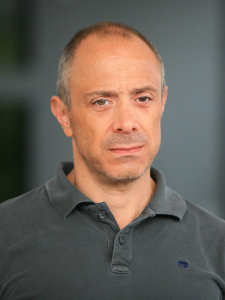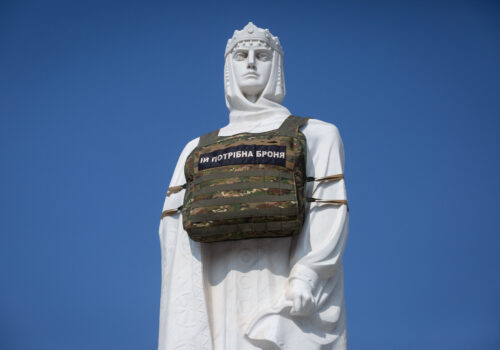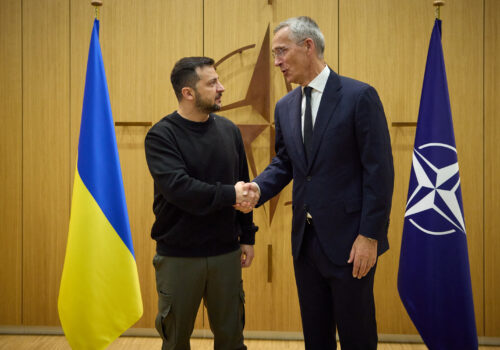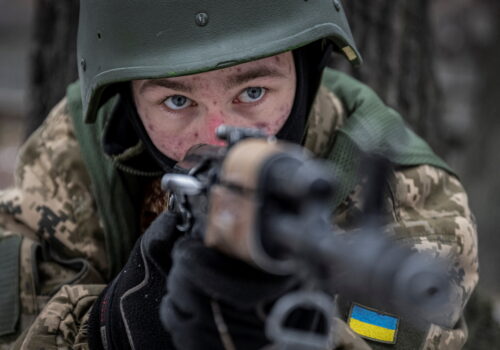
Russia’s full-scale invasion of Ukraine in February 2022 challenged much of the common Western understanding of Russia. How can the world better understand Russia? What are the steps forward for Western policy? The Eurasia Center’s new “Russia Tomorrow” series seeks to reevaluate conceptions of Russia today and better prepare for its future tomorrow.
Russia’s full-scale invasion of Ukraine has reverberated around the world, challenging many preconceived notions about Russia and the global order. Moscow’s war has sparked debate about the future of Ukraine, NATO, and Western institutions, but also requires a renewed understanding of the continued threat posed by a revanchist Kremlin. To respond to the specter of continued Russian aggression, it is essential to take stock of how Russia looks and interacts with the world today and how it might change—or not—in the future.
A new paper series from the Atlantic Council’s Eurasia Center seeks to reevaluate our understanding of Russia in the wake of Moscow’s full-scale invasion of Ukraine. The first paper of this series, from author Casey Michel, explores what five paths Russia’s future might take. The paper examines possible future developments in Russia, their respective likelihoods, and how Western policymakers should prepare for each scenario.
What forces will shape Russia’s wartime reality and its longer-term future? What fate awaits Russian President Vladimir Putin? How will the course of Russia’s war on Ukraine be shaped by Russia’s domestic situation? The Atlantic Council’s Eurasia Center gathers a panel of experts to discuss these questions and more.
Speakers
Yevgenia Albats
Walter Shorenstein Media & Democracy Fellow
Harvard University
Ambassador John Herbst
Senior Director, Eurasia Center
Atlantic Council
Casey Michel
Director, Combating Kleptocracy Program
Human Rights Foundation
Angela Stent
Nonresident Senior Fellow
Brookings Institution;
Senior Advisor
United States Institute of Peace
Moderator
issue spotlight

Europe in crisis
War in Ukraine
In February 2022, Moscow launched an all-out invasion of Ukraine after a months-long military build-up, threatening the country’s sovereignty and its future. This existential moment for the country follows the 2014 Maidan revolution, a nexus for Ukraine’s Europe-focused foreign policy and reform efforts. The ensuing Russian invasion and occupation of Crimea, aggression in Ukraine’s east, and Kremlin disinformation efforts, cast a shadow over Ukraine’s independence.

The Eurasia Center’s mission is to promote policies that strengthen stability, democratic values, and prosperity in Eurasia, from Eastern Europe in the West to the Caucasus, Russia, and Central Asia in the East.
Atlantic Council TV
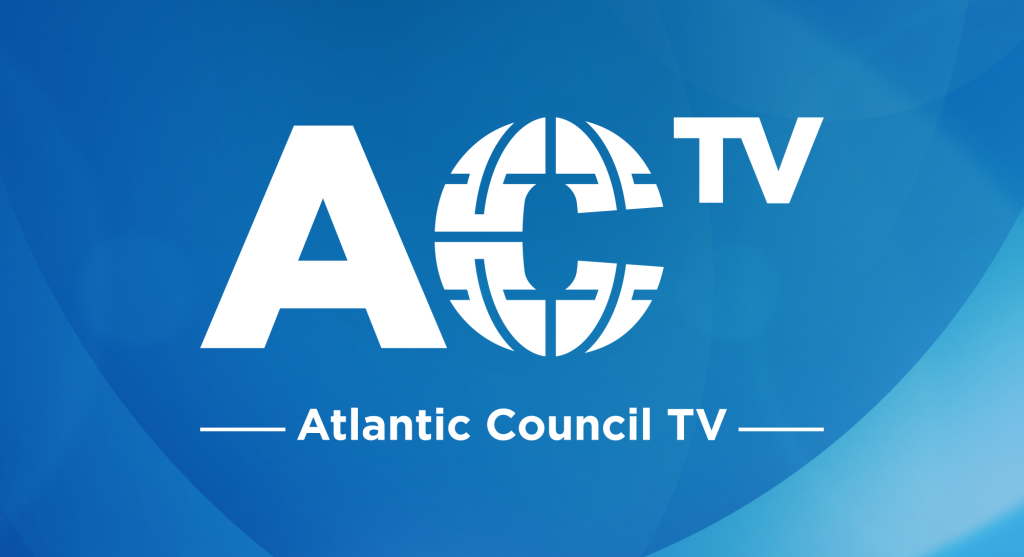
Watch this event and more content on ACTV
Follow the conversations shaping our world. Available on all major platforms.
